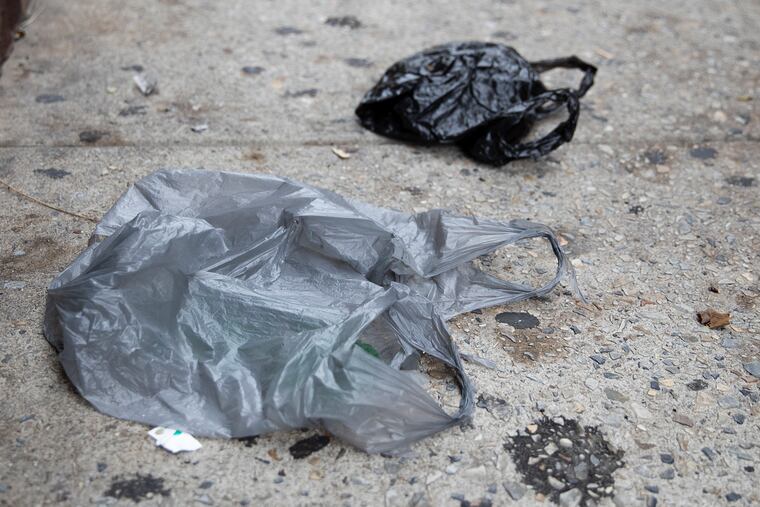This coronavirus pandemic can be lethal to the environment, too | Editorial
As the federal government rolls back environmental regulations, and the public is distracted by the coronavirus, opponents of plastic bag bans in New Jersey and proponents of fracking in Pennsylvania are stepping up their own efforts.

With the attention of most Americans focused on the coronavirus pandemic, industry and retail lobbyists in New Jersey and other states are trying to make the scientifically unconvincing case that reusable bags endanger, and single-use plastic bags benefit, public health. They’re urging the mayors of dozens of Garden State communities to lift their bans on single-use plastic bags; Philadelphia is set to implement a similar ban starting July 2.
The cynical campaign by “Big Plastic” is of a piece with efforts at the state and federal level to roll back environmental protections, reduce oversight, subsidize the fossil fuel industry, and undermine what little progress is being made against climate change. Some cite the pandemic as a rationale.
» READ MORE: Consistent messaging from leaders is key to quelling coronavirus in Pa. and N.J. | Editorial
In Harrisburg, legislators seized upon public worries about the coronavirus as they organized an effort to override Gov. Tom Wolf’s veto last week of a tax break for manufacturers of fertilizers and petrochemicals who use Pennsylvania-produced methane — a bonanza for fracking and natural gas interests. Estimates of the annual cost to Pennsylvania taxpayers range from $6.6 million to $22 million. Wolf, a Democrat, also cited the epidemic as a rationale for his veto, demonstrating the wide-ranging political utility of the virus. The epidemic also has delayed a New Jersey public hearing on a controversial proposal to build a liquefied natural gas (LNG) shipping on the site of a former dynamite factory in Greenwich Township, N.J.: gas fracked in Pennsylvania would be transported across the commonwealth and south through New Jersey by rail.
Earlier this week, the Trump administration executed a plan it announced in 2018 that will eviscerate Obama-era fuel economy and emissions standards for new vehicles. Critics said the move means that an additional 1.5 billion metric tons of greenhouse gas will be expelled into the Earth’s atmosphere by 2040. For three years, the White House has systematically targeted environmental regulations and reporting requirements it deems too onerous for big corporations. The president also has cast doubts on climate science, and was similarly skeptical at first about the coronavirus until evidence of its lethal nature became too overwhelming to ignore.
» READ MORE: State budgets will be reeling from coronavirus — but there may be lessons for next time | Editorial
Meanwhile, data indicate residents of environmentally challenged neighborhoods near industrial sites may be more vulnerable to respiratory diseases like COVID-19. The digital news site Grist reported Thursday that a “community vulnerability map” developed by a health data firm suggests that living among environmental hazards could make some people prone to health conditions that complicate coronavirus infection.
A pandemic may not seem like the right time to tackle environmental issues. But with official meetings and hearings postponed and gatherings suspended, people can and should make their voices heard. Public comments about the proposed LNG terminal in New Jersey may be submitted by email through April 24. Pennsylvanians can contact their representatives in the General Assembly and the Senate about the governor’s veto of the fracking bailout.
» READ MORE: Will a coronavirus mirage of clean air, water inspire climate action — or make things worse? | Will Bunch
The bluer skies and clearer air resulting from a world temporarily retreating from its climate-damaging ways should not lull us into complacency. After we defeat the virus, the fight to save the planet must be won as well. Retreating in our efforts now is not a path to victory.